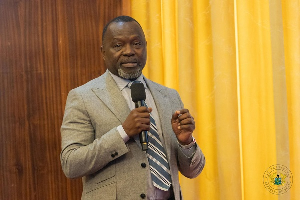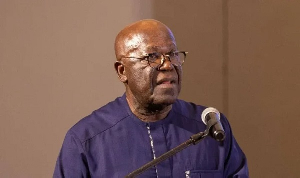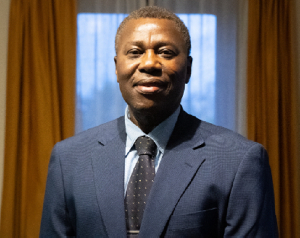The English word "protocol" might seem harmless enough. According to the dictionary, it is defined as "a system of rules that explains the correct conduct and procedures to be followed in formal situations." It represents order, fairness, and a structured approach to doing things.
However, in contemporary Ghana, the term "protocol" has taken on a much more sinister connotation, particularly in the context of recruiting applicants for schools and public service roles, including the police, the army, immigration, and internal revenue, among others.
The term protocol has become a byword for corruption, greed, nepotism, mediocrity, privilege, abuse of office, and an indirect form of oppression against the underprivileged and unconnected. This shameful practice must be eradicated.
For those unfamiliar with how this corrupt system operates, each recruitment cycle is marked by allocations set aside for politicians and influential individuals, often referred to as the “big men and women.” These individuals are then permitted to submit the names of their preferred candidates, who are
always given priority in the recruitment process. Consequently, these handpicked candidates significantly reduce the number of slots available for others to compete for.
For instance, if there are 100 vacancies in the police service and 20 are allocated to the “protocol list,” only 80 slots remain for which thousands of
Unconnected and underprivileged applicants, who are often more qualified than the protocol hires, must compete.
The consequences of this unfair practice are dire. It could lead to the hiring of less qualified individuals, filling our schools, services, and agencies with mediocre individuals at the expense of the better qualified.
This not only undermines the efficiency and effectiveness of these institutions but also perpetuates a cycle of incompetence and underperformance. The resultant mediocrity in public service can lead to inefficiency, incompetence, and a lack of innovation, which hinders national development.
This practice perpetuates an indirect form of oppression against the underprivileged and those without influential connections. It compromises the integrity of institutions and crushes the potential of many talented individuals.
More importantly, the use of "protocol hiring" in recruitment processes undermines the principles of equality and justice. Instead of providing a level playing field where the most qualified candidates are chosen, it reinforces social inequality and erodes public trust in essential institutions.
Young people, who should be the hope for the future, become disillusioned when they see that hard work and talent are not enough to succeed. This may discourage them from striving for excellence. Worse, a feeling that the playing field is not level may foster a culture of cynicism and apathy.
Any argument suggesting that qualified individuals are on the protocol list is weak. If these individuals are competent, they should compete with all the other applicants.
Addressing this issue requires a concerted effort from all levels of society. There must be a solid commitment to enforcing merit-based recruitment processes and holding those who engage in corrupt practices accountable.
Transparency and accountability should be prioritized to restore public confidence in our institutions. We cannot build a just and prosperous society on privilege and a lack of accountability.
Parliament must enact legislation to put an end to this corrupt practice immediately. Admittedly, many parliamentarians may also be complicit in this system. Nonetheless, they must act. By championing fairness and integrity, they can begin to justify their positions of power and privilege.
Charles Dickens opens his classic novel "A Tale of Two Cities" with the line, "It was the best of times, it was the worst of times." In the context of recruitment into government agencies in today's Ghana, this sentiment rings painfully true. For some, it is indeed the best of times, as they benefit from an unjust system. For others, it is the worst of times, as they face insurmountable barriers due to their lack of connections.
Dickens used these words to describe the gross contradictions and injustices of his era, serving as a warning of the consequences to come. Let us heed this warning and strive to create a fairer and more just society.
Opinions of Thursday, 15 August 2024
Columnist: Henry Adobor















